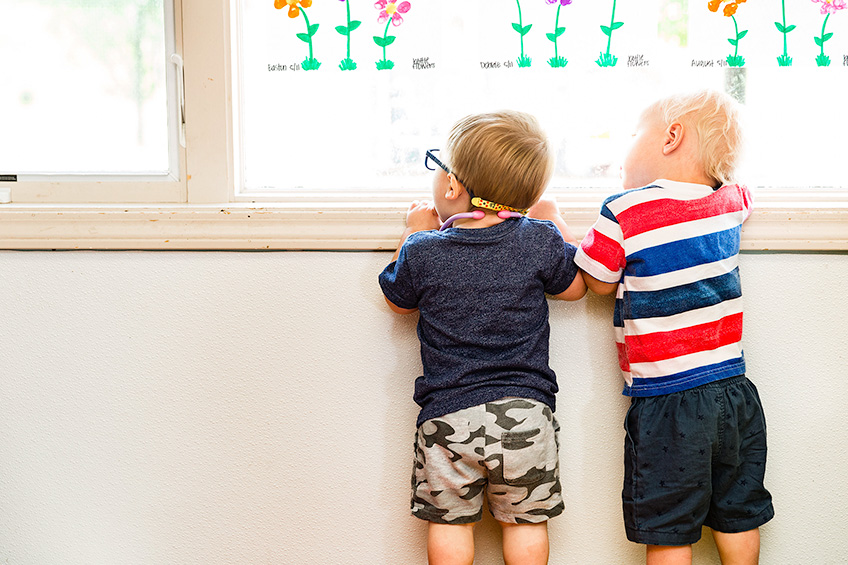Social-Emotional Learning
Conscious Discipline
Conscious Discipline is an evidence-based classroom management practice that focuses on the development of social-emotional and self-regulation skills of both adults and children. Based on an understanding of three primary brain states – Survival; Emotional; and Executive – Conscious Discipline tailors interactions that are best suited for each unique situation. Classroom staff utilize the seven skills of Conscious Discipline, including: Composure, Encouragement, Assertiveness, Choices, Empathy, Positive Intent, and Consequences. By providing consistency and building connection – playfulness, eye contact, physical touch, and presence – children feel safe in the classroom and develop skills of self-regulation, which is necessary for learning.
